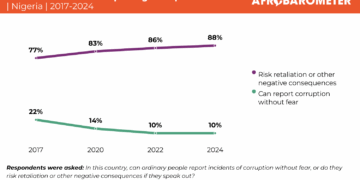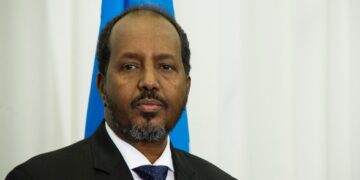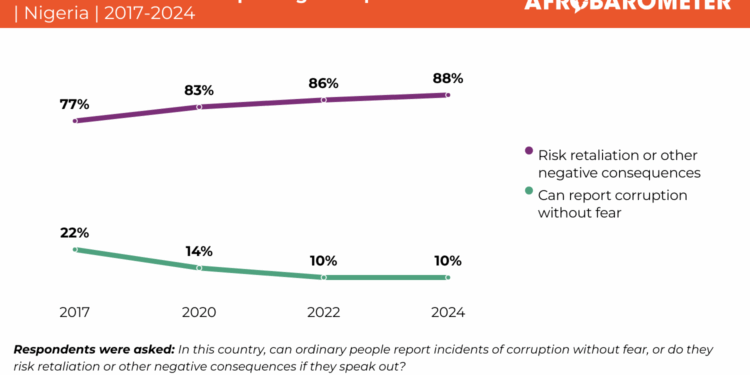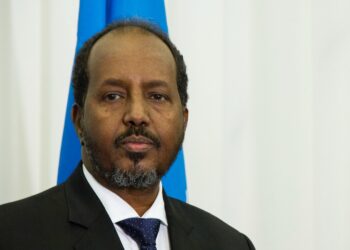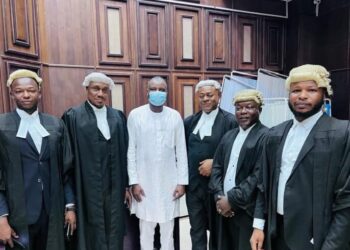By Ebi Kesiena
A new Afrobarometer survey has revealed a troubling rise in public concern about corruption in Nigeria, with a growing number of citizens saying that fear of retaliation is silencing them.
The findings were disclosed to journalists on Tuesday in Abuja during a press briefing organised by NOIPolls, Afrobarometer’s national partner in Nigeria.
Presenting the survey, Director of Research at NOIPolls, Peter Oshaji, explained that 80% of Nigerians believe corruption has increased significantly over the past 12 months, nearly double the 43% who held the same view in 2017.
The report paints a bleak picture of accountability in public institutions, with key agencies and government offices widely perceived as corrupt.
The Nigeria Police Force was ranked as the most corrupt institution, with 70% of respondents saying that “most” or “all” police officials are involved in corruption. Other institutions that received similarly negative assessments include the National Assembly 65%, the Presidency 62%, local government councils 55%, tax offices 55%, and the judiciary 54%.
The survey also found that many Nigerians continue to face demands for bribes when accessing public services. 67% of respondents who sought police assistance reported paying a bribe, while 56% said the same when applying for a government document. More than half, 53% admitted to offering bribes to avoid trouble with the police, and 26% reported paying bribes at public medical facilities.
Most concerning, however, is that only one in 10 Nigerians believe they can report corruption without facing retaliation, highlighting a growing climate of fear and mistrust in the system.
The report further shows that 90% of citizens rate the government’s performance in tackling corruption as “fairly badly” or “very badly”.
The findings are part of Afrobarometer’s Round 10 survey, conducted between 19 June and 17 July 2024, using face-to-face interviews with a nationally representative sample of 1,600 adult Nigerians. Afrobarometer has been conducting surveys across Africa since 1999, offering critical insights into governance, democracy, and public service delivery.
